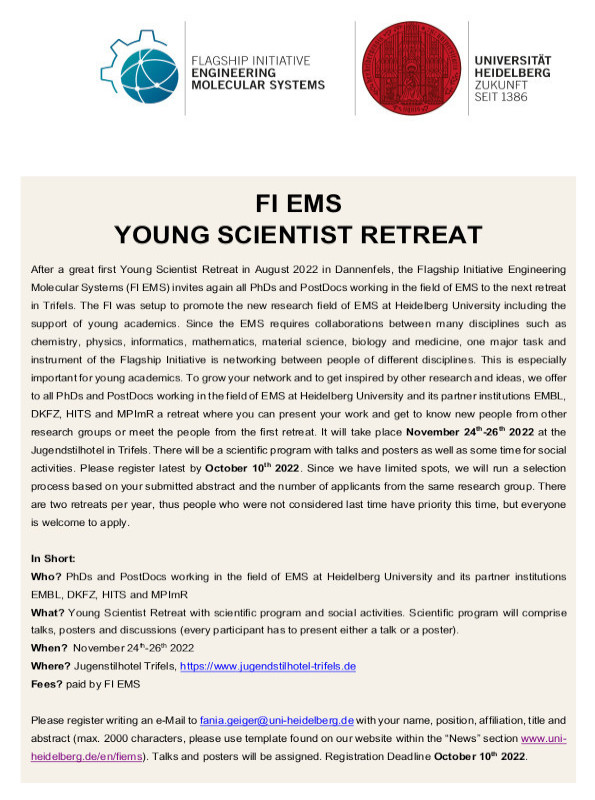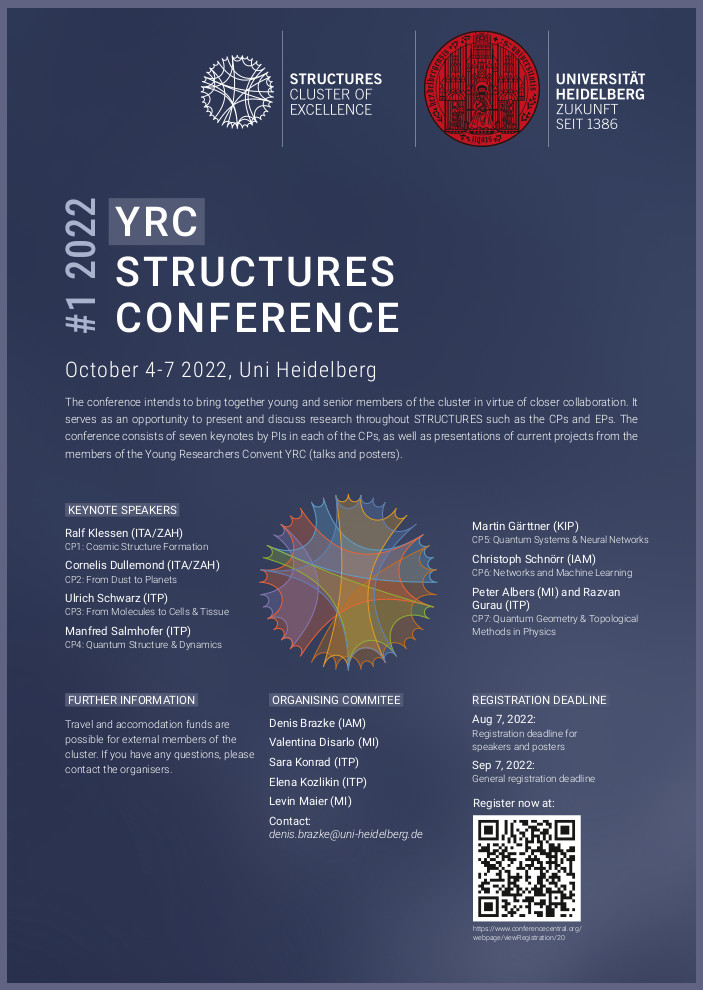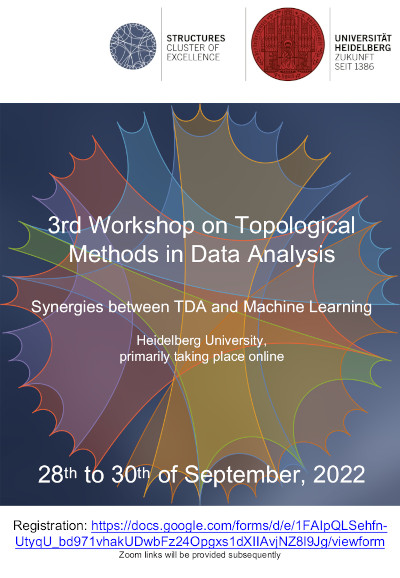Newsroom
Stay informed with our latest news and announcements on this page. For more in-depth content, we also encourage visitors to explore our bimonthly STRUCTURES Newsletter magazine, which features a variety of articles, interviews with members, and background information on our latest research and activities.
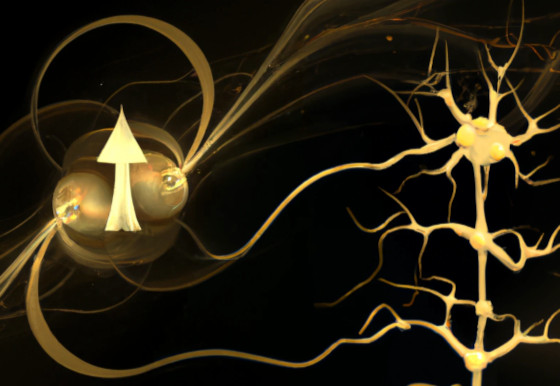 Artistic view of a neural network interacting with a quantum spin system. This image was generated by the artificial intelligence DallE2.
Artistic view of a neural network interacting with a quantum spin system. This image was generated by the artificial intelligence DallE2.Summary by Tobias Schmale, Moritz Reh and Martin Gärttner:
Quantum simulators solve quantum many-body problems that are hard to simulate on classical computers due to the exponential increase of computational cost with the number of simulated particles. This exponential hardness also hits when performing quantum tomography, which means fully characterizing the prepared quantum states. Machine learning inspired variational approaches may overcome this challenge by restricting the manifold of trial states among which the experimentally prepared state is searched. The trick is to find structures inherent to the physical problem the simulator tries to solve, and to use these to create a compressed state representation, just like e.g. in image compression methods. In [1] we demonstrated that this method leads to a scalable tomography scheme using convolutional neural networks. We considered various experimentally relevant scenarios where we generated synthetic measurement data numerically. Working towards deploying this method on real experimental data, we recently applied it to an experiment creating entangled photon pairs [2]. A unique extension, that was possible thanks to collaborations within STRUCTURES, is the use of neuromorphic hardware. Optimizing the parameters of an analog neuromorphic chip we demonstrated the encoding of Bell states [3] and quantum ground states [4].
Associated Literature:
- T. Schmale, M. Reh, M. Gärttner. Efficient quantum state tomography with convolutional neural networks. NPJ Quantum Information 8, 115 (2022).
- M. Neugebauer, L. Fischer, A. Jäger, S. Czischek, S. Jochim, M. Weidemüller, M. Gärttner. Neural-network quantum state tomography in a two-qubit experiment. Phys. Rev. A 102, 042604 (2020).
- S. Czischek, A. Baumbach, S. Billaudelle, B. Cramer, L. Kades, J. M. Pawlowski, M. K. Oberthaler, J. Schemmel, M. A. Petrovici, T. Gasenzer, M. Gärttner. Spiking neuromorphic chip learns entangled quantum states. SciPost Phys. 12, 39 (2022).
- R. Klassert, A. Baumbach, M. A. Petrovici, M. Gärttner. Variational learning of quantum ground states on spiking neuromorphic hardware. iScience 25(8), 104707 (2022).
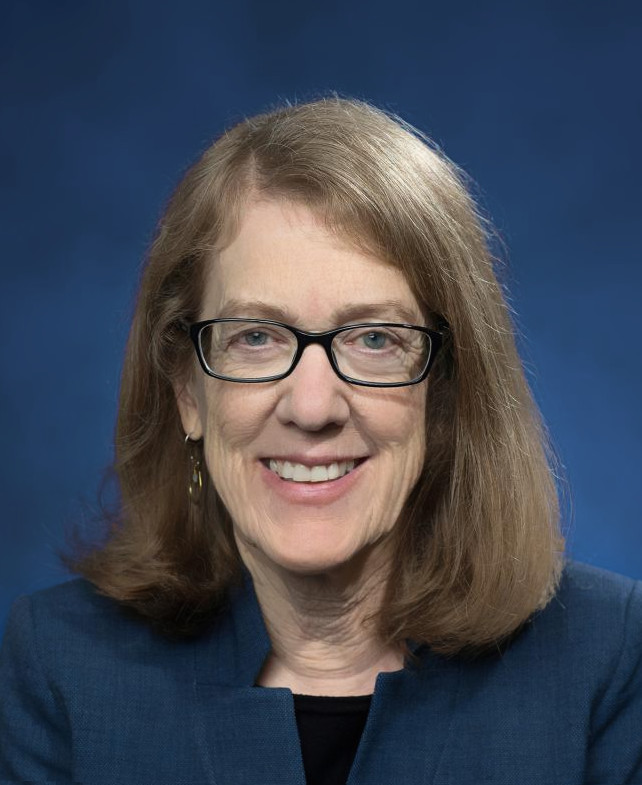 Sally Dawson
Sally DawsonIn recognition of her outstanding scientific achievements in the field of Theoretical Physics, Dr Sally Dawson is to be awarded the honorary doctorate of the Combined Faculty of Mathematics, Engineering and Natural Sciences of Heidelberg University. The Faculty is paying tribute to her contributions, particularly to the discovery and physics of the Higgs Boson. Dr Dawson, researcher at the Brookhaven National Laboratory, has had close connections for many years with the elementary particle research community in Germany, and Heidelberg in particular.
The honorary doctorate will be presented by Rector Prof Dr Bernhard Eitel at an award ceremony on Thursday (Oct 13) at 6 pm in the Great Hall of the Old University (Alte Aula). The laudatory address will be given by STRUCTURES member Prof Dr Jürgen Berges, Dean of Heidelberg's Physics & Astronomy Department. Dr Dawson will then give the “Hans Jensen Lecture” on the topic “Why Study Particle Physics? Tackling the Big Questions”. The lecture series commemorates Hans Jensen, a Heidelberg researcher in the field of Theoretical Physics who received the Nobel Prize in 1963.
For more information, see also Heidelberg University's press release.
The 49th Heidelberg Physics Graduate Days of the Heidelberg Graduate School for Physics (HGSFP) take place on October 10 - 14, 2022. With the Graduate Days, co-organised by STRUCTURES, the HGSFP offers advanced students and researchers a biannual spring/autumn school featuring different topics from various fields of physics. Participants are encouraged to broaden their perspective in physics by attending introductory courses on topics that are unfamiliar to them, or deepen their knowledge by attending specific courses that may be offered at a deeper level. Courses are held in English.
The schedule and further information can be found on the Graduate Days Website.
The Flagship Initiative: Engineering Molecular Systems (FI EMS) invites all PhDs and PostDocs working in the field of Engineering Molecular Systems at Heidelberg University (and its partner institutions) to their young scientist retreat at Trifels on November 24th – 26th 2022. There will be a scientific program with talks and posters as well as some time for social activities. Registration is open until October 10th.
Further information:Special Talk by Prof Avi Wigderson (Abel Prize winner 2021) on “Randomness - the Utility of Unpredictability”, September 19, 3:00 pm
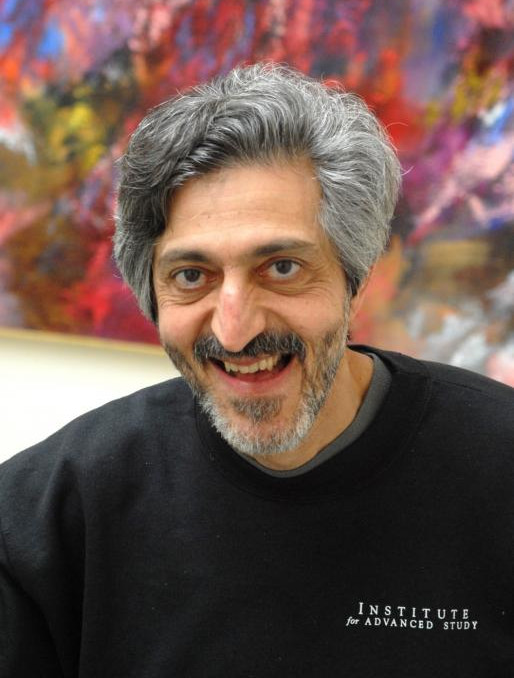
We are delighted to announce that Prof. Avi Wigderson (IAS, Princeton, Abel prize winner 2021) will give a talk with the title Randomness - the Utility of Unpredictability on Monday, Sep 19, 3 pm at INF 230 (Großer Hörssal). The talk is aimed to a general audience, in particular to staff and students in physics, computer science and mathematics. After the talk, there is some time for questions to and chatting with the speaker.
Title: Randomness - the Utility of Unpredictability
Abstract: Is the universe inherently deterministic or probabilistic? Perhaps more importantly - can we tell the difference between the two? Humanity has pondered the meaning and utility of randomness for millennia. There is a remarkable variety of ways in which we utilize perfect coin tosses to our advantage: in statistics, cryptography, game theory, algorithms, gambling... Indeed, randomness seems indispensable!
Which of these applications survive if the universe had no randomness in it at all? Which of them survive if only poor-quality randomness is available, e.g. that arises from "unpredictable" phenomena like the weather or the stock market? A computational theory of (pseudo)randomness, developed in the past decades, reveals (perhaps counter-intuitively) that very little is lost in such deterministic or weakly random worlds. In the talk I'll explain the main ideas and results of this theory.
No special background will be assumed.
Host: Felix Joos
Avi Wigderson is a widely recognized authority in the diverse and evolving field of theoretical computer science. His main research area is computational complexity theory. Together with László Lovász, Avi Wigderson was awarded the prize 2021 for their striking contributions to Theoretical Computer Science and Discrete Mathematics. The Abel prize is together with the fields medal arguably the most prestigious award in mathematics.
The registration for the YRC STRUCTURES Conference 2022 closes soon. You can still register until September 7th via this link.
The YRC STRUCTURES Conference, which takes place from October 4 to 7 in Neuenheimer Feld, will bring together young and senior members of the cluster. It is the first and only such event which allows all cluster and YRC (Young Researchers Convent) members to meet in person and discuss your ongoing research within the cluster. We look forward to engaging overview talks contributed by the cluster PIs, exciting talks by YRC members presenting their research and newest results within the cluster, fruitful discussions during poster sessions and lunch talks from exciting new start-ups.
For further information, please see also the conference web page.
From 28th to 30th of September the Third Workshop on Topological Methods in Data Analysis will take place within the Cluster of Excellence STRUCTURES at Heidelberg University. This three-day workshop includes introductions into the powerful data analysis machinery of persistent homology and to machine learning techniques. A particular focus is laid on synergies between topological data analysis and machine learning, where fruitful applications have been recently emerging. The workshop will take place primarily online, complemented by on-site get-together opportunities in Heidelberg.
The registration is now OPEN (link).
Prior to the workshop, we offer from 12th to 16th of September, an introductory course on topological data analysis on-site in Heidelberg, which is tailored to non-mathematicians and focusing on intuitive examples. We ask for prior notification of attendence via mail to mschmahl[at]mathi.uni-heidelberg.de.
For further information, please see the workshop's webpage at:
https://tda.mathi.uni-heidelberg.de/
